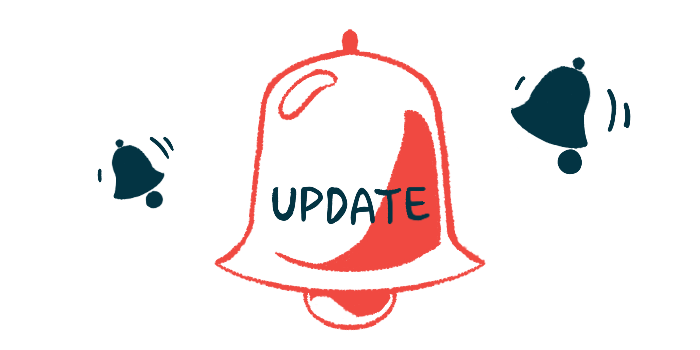According to an update from developer Clene Nanomedicine, early treatment with CNM-Au8 continues to show survival benefits in people with amyotrophic lateral sclerosis (ALS) compared to those who started treatment nine months later.
The updated results come from the Phase 2 RESCUE-ALS study (NCT04098406) and its open-label extension study (OLE) (NCT05299658), evaluating investigational treatment in people with early-stage ALS.
The results were presented in a poster entitled “Evidence of a survival benefit with CNM-Au8 treatment: interim results from the RESCUE-ALS long-term open-label extension study‘, at the 2022 American Association of Neuromuscular and Electrodiagnostic Medicine Clinical and Scientific Conference, September 21-24 in Tennessee.
“These RESCUE-ALS clinical and survival data add to the growing body of evidence supporting the potential of CNM-Au8 as a disease-modifying therapy for amyotrophic lateral sclerosis (ALS),” said Robert Glanzman, MD, Clene’s chief medical officer in a press release the company.
CNM-Au8 is an oral liquid suspension containing gold nanocrystals. It’s designed to protect nerve cells by supporting their energy needs and protecting them from oxidative stress, a type of cell damage associated with ALS. Clene believes this mechanism of action may prevent nerve cell death and slow the progression of ALS.
The RESCUE-ALS study enrolled 45 adults with early-stage ALS, meaning that it was less than two years since the onset of symptoms or less than a year since diagnosis. Participants were enrolled in Australia and randomized to receive oral CNM-Au8 (30 mg) or placebo daily for 36 weeks (approximately nine months).
Top-line data from RESCUE-ALS indicated that the study did not meet its primary and key secondary objectives of preventing motor neuron loss and lung function deterioration during this time.
Possible survival benefit of CNM-Au8
However, additional analysis showed that CNM-Au8 significantly slowed disease progression and improved quality of life. It also slowed nerve cell loss in patients with ALS in the limbs and showed potential to improve long-term survival.
After the study, most participants elected to continue the study’s open-label extension, with all receiving CNM-Au8 for up to 96 weeks (nearly two years).
The long-term survival analysis presented on the poster reflected up to 137 weeks of follow-up data from RESCUE-ALS and the extension study, with a cut-off date of August 31.
Consistent with findings from the July 5 cut-off, the updated results showed that patients assigned CNM-Au8 during RESCUE-ALS had a 70% reduced risk of death compared to those who started treatment in the OLE portion.
The treatment also demonstrated significant survival benefits compared to the predicted median survival when patients were left untreated. This analysis was based on the European Network To Cure ALS (ENCALS) prediction model, which takes into account each person’s baseline characteristics to predict survival. Here, and as previously reported, CNM-Au8 treatment reduced the risk of mortality by approximately 64% compared to predicted survival.
“The impressive ALS survival benefits observed with CNM-Au8 treatment support our thesis that energetic support of neurons can protect the CNS [central nervous system] health and a slow progression of neurodegenerative diseases,” said Rob Etherington, CEO of Clene.
CNM-Au8 is also being evaluated in the HEALEY platform study (NCT04297683), which will test multiple potential ALS therapies against a shared placebo group. In the CNM-Au8 arm (NCT04414345), approximately 160 ALS patients were randomly assigned to CNM-Au8 at 30 or 60 mg or placebo daily for six months.
Results from this arm are expected in the coming months. If they are positive, Clene plans to use them to support regulatory submissions for approval of the therapy for ALS.
“We look forward to the upcoming results of the HEALEY ALS platform study and the advancement of CNM-Au8 development in ALS and other neurodegenerative diseases, including multiple sclerosis and Parkinson’s disease,” said Etherington.
#Early #CNMAu8 #Treatment #ALS #Continues #Show #Chances #Survival..


Leave a Comment